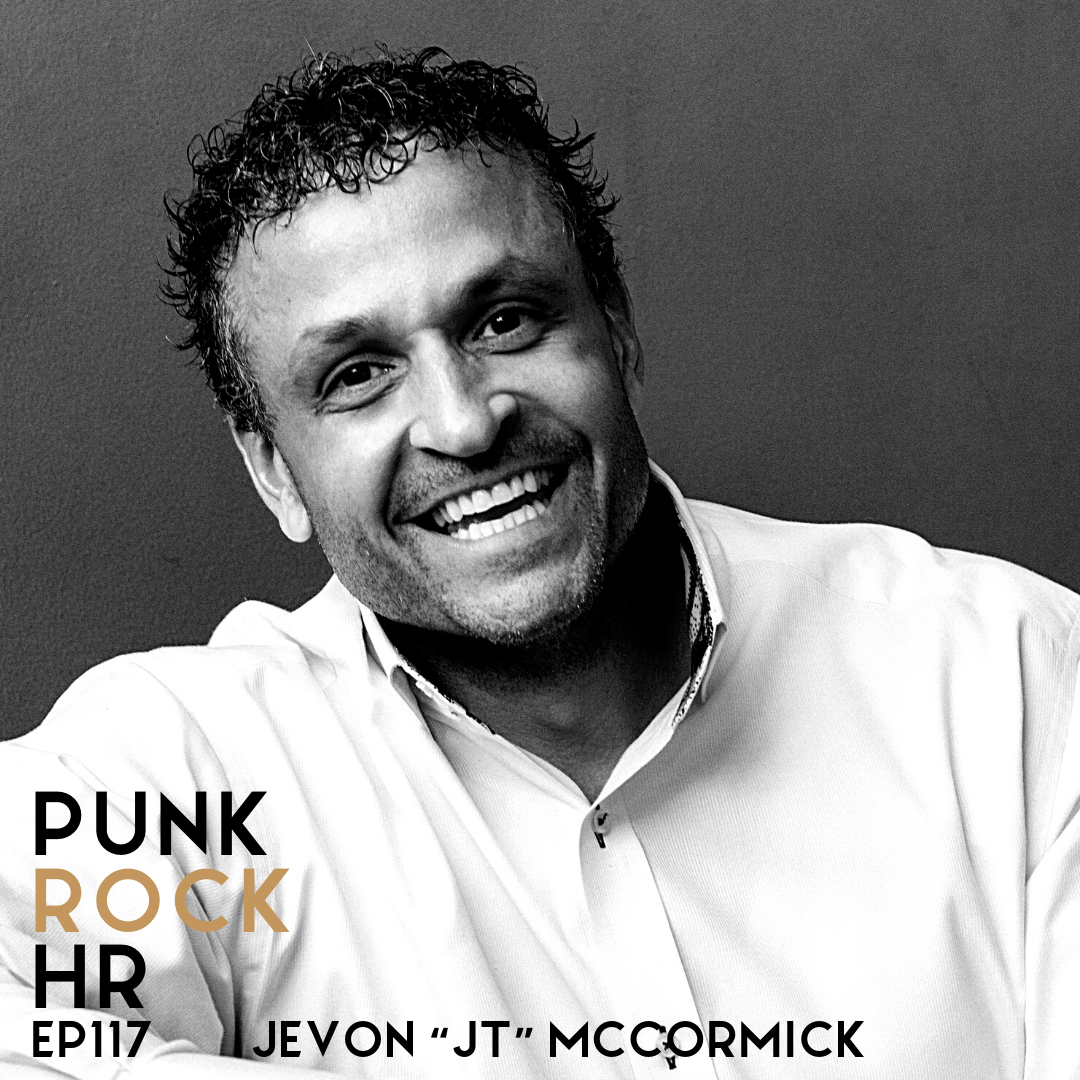
Punk Rock HR Episode 117:
JeVon “JT” McCormick is the CEO of Scribe Media, a publishing company that helps authors write, publish, and market their books. More importantly, he is someone with an incredibly interesting backstory.
JT grew up amidst chaos, never went to college, and started his career in labor-intensive jobs. Yet, through these experiences, he managed to understand society better. That eventually became his avenue to success.
Now, he runs a company that published the most sought after book in America last year: Can’t Hurt Me by David Goggins. He also recently wrote a piece that appeared on CNN.com and went viral. In today’s episode, we talk about work, power, politics, money, the Coronavirus, Black Lives Matter, and what it means to be a leader in uncertain times.
In this episode you’ll hear:
- What got JT to where he is today.
- His chaotic origin story that helped contribute to his business success.
- The 3 rules of leadership he lives by.
- Why the future of work should be a combination of remote and office space.
- The toxicity of binary thinking.
- How to create a culture of trust.
- How to measure success in a way that honors employees.
- The changes and conversations that have occurred in Scribe Media amidst COVID-19 and the Black Lives Matter movement.
- The role of corporations in addressing the systemic problems in our country.
KEY TAKEAWAYS
WHAT ARE THE THREE RULES OF LEADERSHIP JT LIVES BY?
When JT read these words from Henry Ford, his perspective on leadership changed forever. Ford said, “For every question that I don’t know the answer, I have people that work with me who know the answers.” From this insight, JT developed his 3 rules of leadership: surround the company with people far smarter than myself, surround myself with people far smarter than me, and then repeat rules one through two.
WHY SHOULD THE FUTURE OF WORK BE A DYNAMIC COMBINATION OF REMOTE AND OFFICE SPACE?
Binary thinking is toxic. We can’t assume that there are only two types of people in the world. Rather, there are all different kinds of people and each one is unique. Regarding remote and office work, there should be a dynamic combination of the two spaces. This is because some of the best work happens in collaboration. Being able to walk over to a co-worker’s desk and have a conversation is incredibly convenient and useful. However, there are also many benefits that come from not having to commute to work every day and from having the flexibility to leave for appointments and other events. What matters is that you are driving results and getting your work done.
HOW CAN I CREATE A CULTURE OF TRUST IN MY CORPORATION?
It starts with the hiring process. When many employees are hired, they don’t know what the company stands for or its principles and values. These aren’t communicated until the employee starts. Instead, businesses should make the company values public-facing. With that, they’re building trust before employees are even in the organization. Once they’re in it, they see that the company actually runs by those principles and this builds trust. Additionally, building trust is a two way street and a relationship. It is integral that corporations take a collaborative vs. dictator approach.
HOW DO I MEASURE SUCCESS IN A WAY THAT HONORS MY EMPLOYEES?
No one should be surprised if they’re let go, but no one should be surprised that they’re doing a great job either. One way to avoid this is with 30-day check-ins. Employees should know how they’re performing early and often. Both the negative and positive aspects of their performance should be communicated to them. Another way this can be developed is through supporting employees in all kinds of issues, not just work-related issues.
WHAT IS THE ROLE OF CORPORATION IN ADDRESSING THE SYSTEMIC PROBLEMS IN AMERICA?
The Constitution starts with “we the people.” Businesses can’t wait for the government to bring change. Rather, the greatest changes that can be made are within business. It is certainly true that money brings change and money brings a voice. Companies must stand by the things that need to change in this country. Even more powerful than business, however, is consistency. If you’re not consistent, you won’t drive results. So, businesses must stand against systemic problems and stand against them consistently.